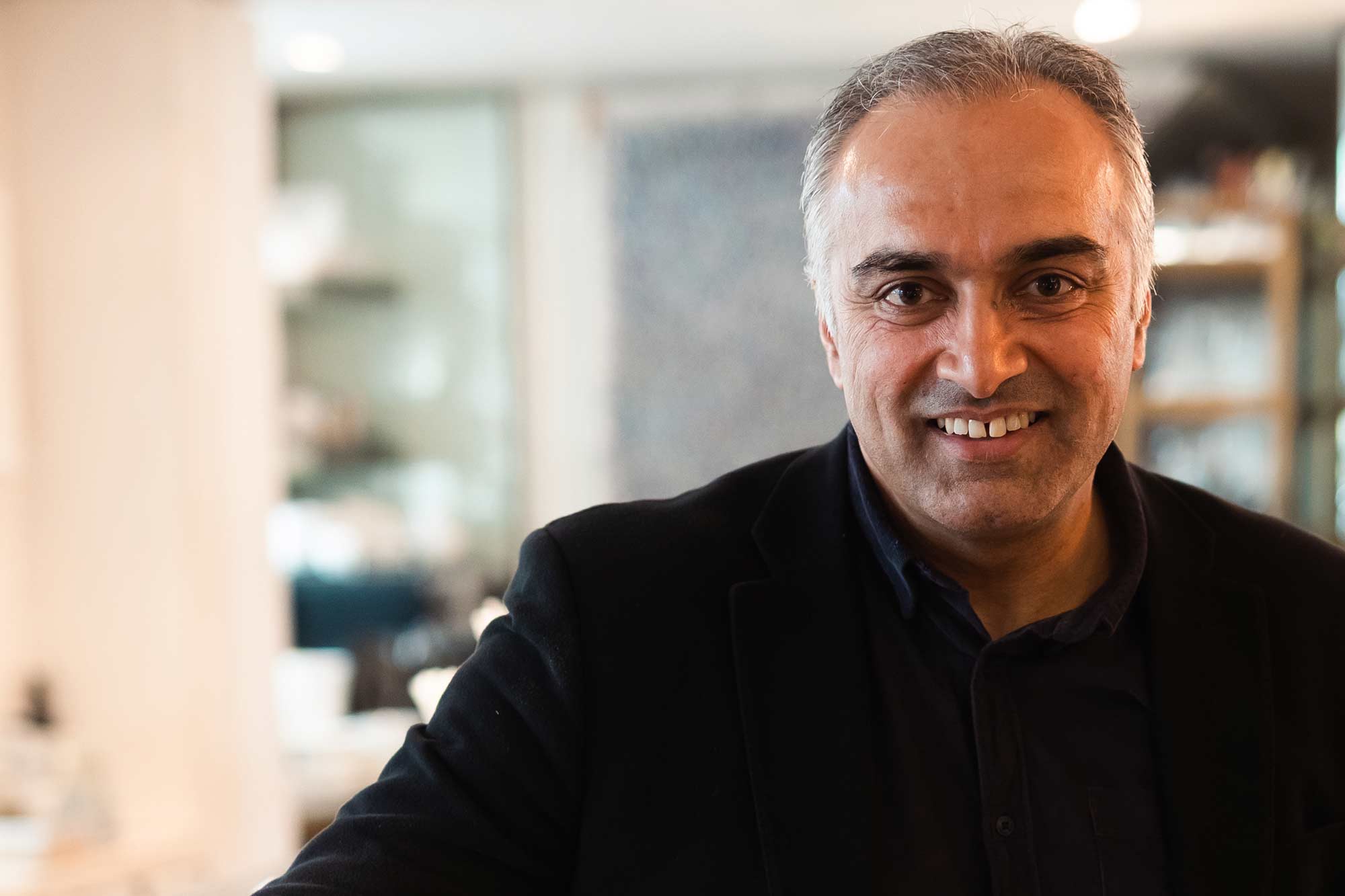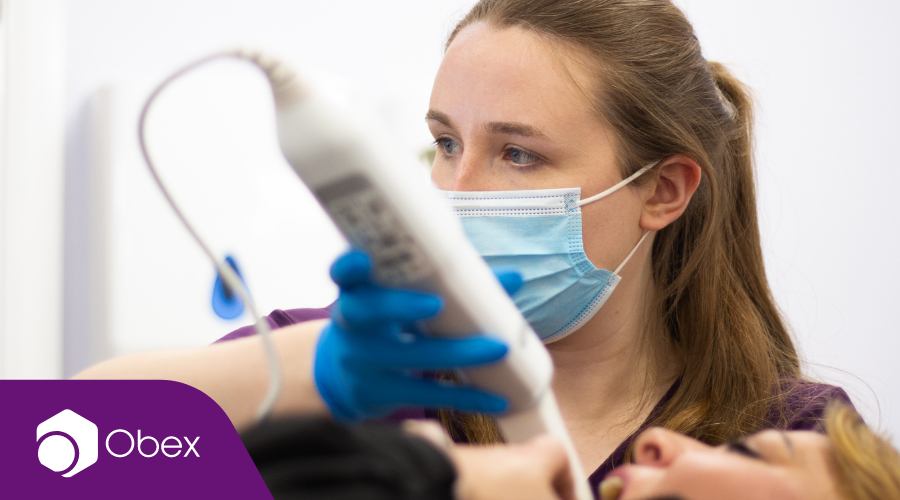 The time is now for the profession to come together and save NHS dentistry, says Sab Bhandal, founder and CEO of Obex Dental.
The time is now for the profession to come together and save NHS dentistry, says Sab Bhandal, founder and CEO of Obex Dental.
Last year was a testing year for those of us involved in NHS dentistry. With workforce issues, supply chain problems, inflation pressures, high needs of patients that have not attended due to the pandemic and so much more, we have had plenty to deal with.
As we move into 2023, we have been promised a new world of NHS dentistry in the form of Integrated Care Boards (ICBs). A more localised approach requiring local collaboration to shape the future of the care we deliver to the communities that we serve.
This is going to take leadership and courage at every level. It is our NHS, so it is our responsibility to make the adaptation needed to keep the service vibrant and viable before handing it over to the next generation.
NHS dentistry has been in crisis for many years, but today we face many deep-set challenges around policy, funding and skills. However, this is an industry filled with dynamism, talent and innovation, and I see these same challenges present many opportunities.
The biggest threat to NHS dentistry comes from the delay in NHS contract reform and its implementation. You only have to watch or read the news to hear how this impacts the service millions of patients in the UK rely on. People are travelling abroad, or worse, they are resorting to home dentistry.
Yet reform isn’t just about funding and how treatment funding is allocated, but also how we develop and leverage the skills mix. I see one of the greatest opportunities for reform lies in introducing dental care professional (DCP) led preventative care.
Overcoming generational failings
The confluence of challenges we face is clear: generational failings in policy and university funding, a not fit-for-purpose funding model, the lasting impacts of Covid-19, deep-set labour shortages, decreasing skills levels, and arguably underlying conditions from the Brexit transition.
The impacts from all these combined have led to a shortage of dentists and trained dental nurses, both mission-critical to delivering a standard of care we should expect in 21st century Britain.
The recruitment shortage being so viscerally experienced across the industry, not least in ‘dentistry deserts’ of rural, coastal or deprived areas, has had the net result of driving operating costs up significantly.
This is clearly an unsustainable issue and is tipping the balance in the commercial viability of NHS contracts, and the consequences could be dire. Last year, the BBC drew attention to this – www.bbc.co.uk/news/uk-politics-60336604.
Associates are moving in greater numbers to private practice and are reducing working hours to suit work-life-balance desires. These two factors alone are pushing practice owners away from NHS contracts to find commercial viability. Extrapolate this trend forwards, with hundreds of practices and scores of dental groups following.
We face an unprecedented crisis which will be hugely expensive to recover from and will have a significant impact on the nation’s health standards.
While everyone will feel the cost, disadvantaged communities will suffer the most and the statistics are already stark.
This article highlights some startling statistics – www.bbc.co.uk/news/health-62253893 – such as in a third of the UK’s more than 200 council areas, no practices were taking on adult NHS dentistry patients. Eight in 10 NHS practices were not taking on children.
Instil and develop a DCP skills mix
Reform has been signalled, talked about, consulted upon, even trialled, and seemingly with all the key stakeholders and official bodies supporting them. Still, change has unfortunately stalled, exasperating abundant issues across the service.
While it is recognised that any reform primarily requires sea-change around how units of dental activity (UDAs) are accounted for, rated and delivered, I believe the most significant driver of that reform resides in how we instil and develop a DCP skills mix in NHS dental care.

Since 2013, DCPs have been able to work privately to their full scope of practice, providing direct access without people needing to see a dentist first. This has brought great benefits and flexibility in terms of skills mix in private dental practice.
Widespread misunderstanding of the administration involved in opening and closing an NHS course of treatment has limited direct access to private dental care.
The 2022/23 contract reform has given clarity on this process, with changes to the FP17 claim form.
Now that the official bodies have cleared up the confusion, it is over to us as a profession to implement skills mix to reshape NHS Dental Care for the future.
Ten years to change a form
At this point, I think we as a profession should stand back and reflect on how it has taken us 10 years to realise that we needed to change a form in order to allow therapists to see patients under the NHS.
While we have been trying to sort out our admin, how many children have been unable to see a dental professional to get off to a good start and prevent tooth decay? How many of these children have subsequently ended up in A&E departments with pain? How many of those children have had to have a general anaesthetic to extract a carious, painful tooth?
Did we really need 10 years to get our admin and communication sorted out?
On a positive note, it is good to see that the NHS reform team is making changes, but it needs to improve the rollout of reforms with clarity to ensure implementation in a timely manner.
Bringing about change is never easy, but when stakeholders understand why the change is being brought about and have support to make it a reality, the process is less frustrating and can be rewarding as a shared achievement of an outcome.
We need to see greater collaboration and clearer communication between stakeholders to ensure that reform changes are planned and handed to the profession with clear guidance to allow rapid implementation.
An integrated care model will deliver better long-term outcomes and value to NHS dentistry and society
Since the NHS was established in 1948, we are the first generation to be confronted with its existential survival, at least in the form we have long been used to.
An ageing population, qualified staff shortages, backlogs for treatment, funding shortfalls and political chaos…it’s obvious to all: things cannot go on as they are.
Front line healthcare, by necessity, has to change and our approaches rethought. Until now we have largely focussed on reactive healthcare and the innovation and optimisation of any treatment.
Yet, what we should be focussing on is prevention rather than reactive responses. I believe preventative healthcare is where the UK should be putting more focus and investment.
Dentistry is in a unique position to play a different role in the health service and healthcare sector as a whole. We see many patients typically at least every six months, sometimes sooner.
This presents an easy, convenient and scalable opportunity to deliver integrated care and relieve pressure from other areas of the health service and at a fraction of the cost.
Preventative and supportive
For example, preventative care around smoking cessation, diabetes prevention and management, weight management, blood pressure control and even mental health service signposting have all been tested and trialled to great success.
Prevention has to be the heart of the future modelling of care to ensure that we have an economically viable system, representing value for money for the taxpayer.
In all other aspects of healthcare, the most qualified professionals (with the greatest scope of practice) is not responsible for delivering preventative, supportive self-management.
In the context of general dental practice, we cannot feasibly deliver prevention based care by making dentists responsible. This a job for DCPs.
We need to engage with our ICBs to understand the learnings and findings of the Professor Jimmy Steele report in 2009 and finally implement a new way of working.
Enabling DCPs to take a share in the delivery of care will allow the already stretched dentists, to focus on dealing with urgent care. It will also allow us to improve patients’ knowledge and habits to reduce the damage of periodontal disease and caries, reducing the need for advanced and complex care.
Good at hitting targets and good at missing the point
By working in the UDA system, we as a profession have become good at hitting targets. Unfortunately, we have also become good at missing the point.
In towns such as Luton where we are based, if you are born in the most deprived electoral ward, your life expectancy is on average nine years less than someone born in the most affluent electoral ward in Luton.
As a profession, we can help change this by helping the people in the communities we serve to start well, live well, age well and thereby reduce inequalities.
By upskilling our DCPs, we will be embracing locally based talent to serve the communities that they live in and help their family, friends and neighbours to take responsibility for their wellbeing.
As practice owners and associates we can deliver leadership by inspiring our DCP colleagues to achieve their potential. We can also hold the hands of our ICB partners, asking them to trust us as we guide them through the challenging, changing terrain ahead of us.
It is time for us to come together and do our bit.
For information about careers at Obex, please go to www.obexdental.co.uk/recruitment.


